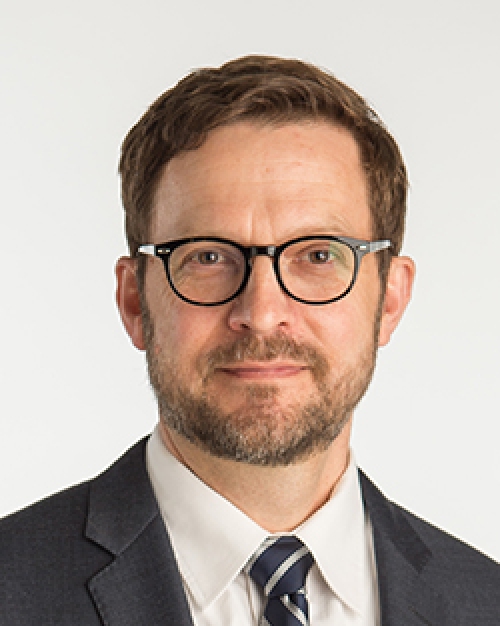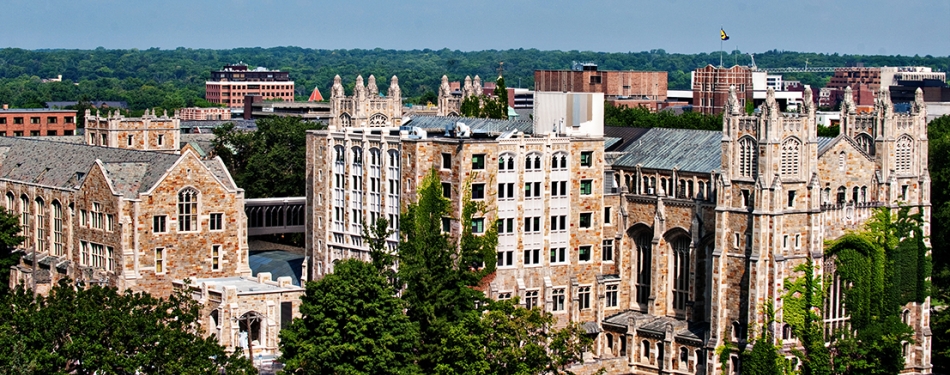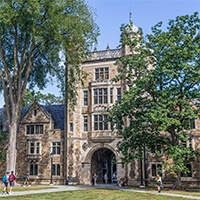The University of Michigan’s Graham Sustainability Institute recently named five new catalyst grant award winners who will lead projects designed to advance potential infrastructure solutions across energy, transportation, and the built environment. Among them is Kyle Logue, the Douglas A. Kahn Collegiate Professor of Law.

Logue’s team of interdisciplinary scholars, including faculty from U-M’s Taubman College of Architecture and Urban Planning, Michigan State University, and Michigan Technological University, will focus on risks to property and nature on the shores of the Great Lakes. Logue brings to the project team his interest and expertise in the role of public and private insurance organizations in our society and the allocation of the costs of climate change adaptation. He said it is “refreshing and enlightening to be working with a team of researchers whose areas of expertise are different from mine and who come at these problems from a different perspective.”
Coastal development poses a great threat to the Great Lakes—increasingly degrading the shoreline and putting properties at risk. The historical responses to such erosion, this project posits, have been unsustainable, both ecologically and economically.
To better inform responses, Logue and his teammates will address specific factors, such as how insurance options might influence individual property development decisions, whether structure design in high-hazard coastal settings might be improved to reduce vulnerabilities, and whether and how community planning efforts are addressing these interrelated questions.
“The grant allows me to employ a team of law students to dig deep into several related questions having to do with the problem of the harms from lake-level erosion,” Logue said. “Those questions include: What precisely is the nature of the insurance gap here? What are its causes and potential solutions? What have other communities who found themselves facing what appear to be uninsurable risks associated with climate change done to ameliorate the problem? How might the law and insurance markets help to incentivize and fund climate change adaptation along the Great Lakes coasts? What role is there for publicly provided insurance/compensation for these risks? Here again, we will be looking for insights from other areas where the law and insurance mechanisms have been forced to respond to increases in climate-related losses.”
The Graham Sustainability Institute brings together scholars from across the University of Michigan, as well as community partners and decision-makers, to apply world-class research to real-world sustainability challenges. Since 2017, more than 30 projects have received funding through the institute’s catalyst grant program in an effort to support small-scale, collaborative, interdisciplinary sustainability research.







